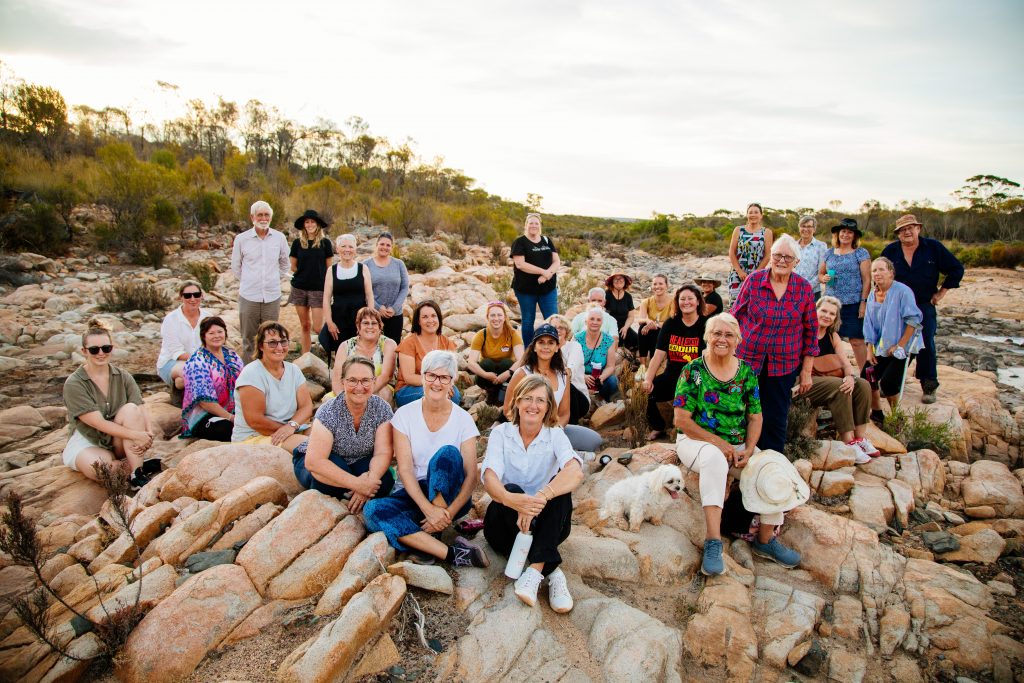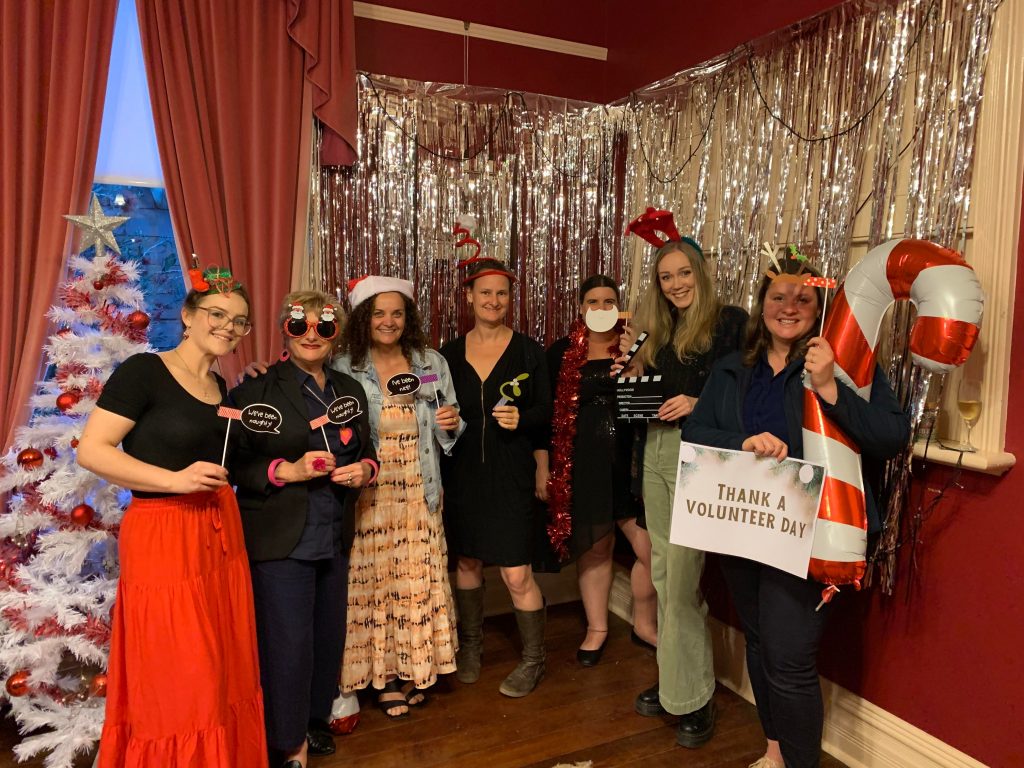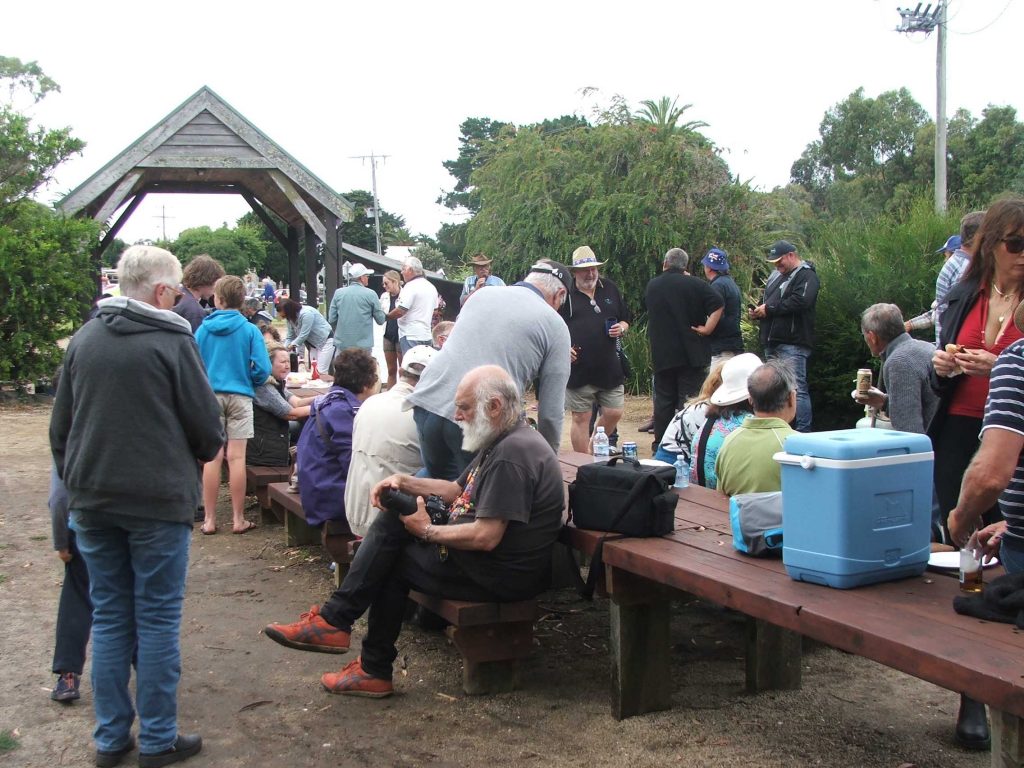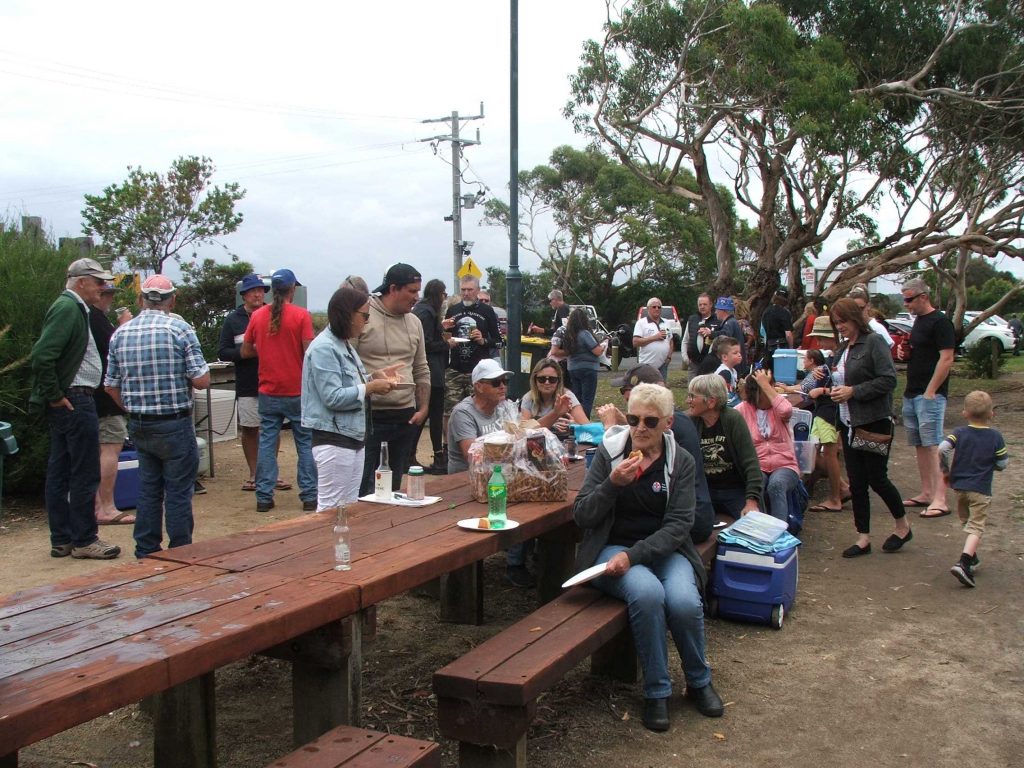Foundation for Rural & Regional Renewal (FRRR)
Local NFP leaders invited to join a roadmapping workshop
The Foundation for Rural & Regional Renewal (FRRR) and Bega Valley Shire Council are pleased to announce the start of a new initiative under the $1.3 million Australian Government Black Summer Bushfire Recovery Grants Program.
Investing in Rural Community Futures (IRCF) Bega Valley – Resilience Connection and Place Project builds on the work done over the last year through FRRR’s Investing in Not-for-Profit Capacity in Regional NSW (INFPC) program.
IRCF Bega Valley will support not-for-profits (NFPs) by strengthening their capacity to service local communities through a mix of on-the-ground support, using local facilitators and access to workshops and training.
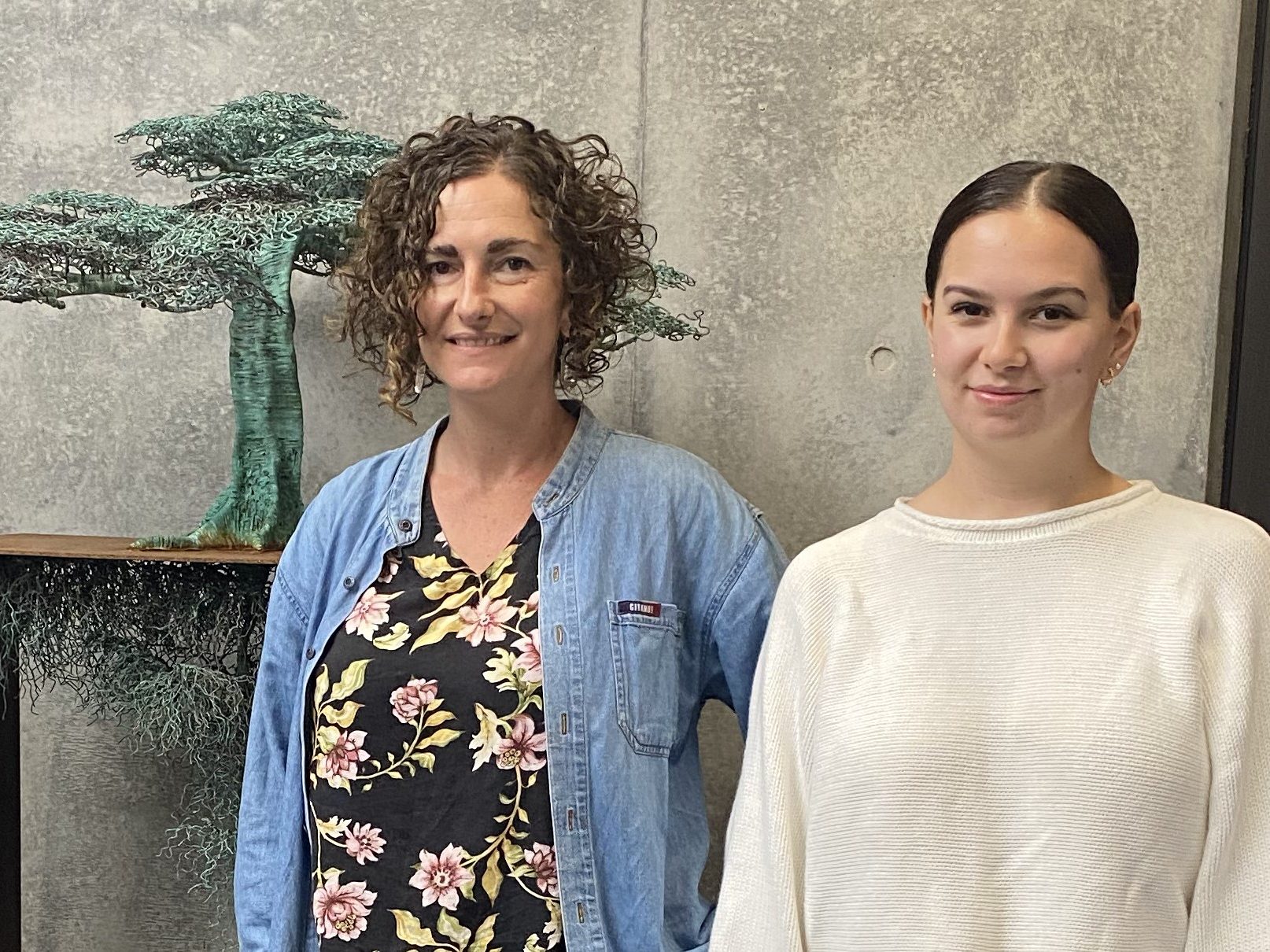
Bega Valley Shire Council is hosting two part-time facilitators, Leah Szanto and Bree Morgan. The facilitators will be connecting with groups across the shire to identify ways in which the local NFP sector can strengthen and adapt to changing community needs in order to thrive. NFPs will be invited to participate in a collaborative planning process aimed at building their capacity and ensuring the sustainability of individual organisations and projects through networking, skill development and community-led initiatives.
The IRCF model is currently being implemented in seven other communities across NSW. A key element is a road mapping process where goals and priorities are decided by the community, for the community. Work has already been done on this through the INFPC program over the last 12 months and now a roadmap will be designed at a workshop in Bega on Tuesday 14 March at 9:00 am. All local NFP leaders are invited to attend and registration is essential via https://frrr-bvsc-workshop.paperform.co/.
FRRR’s IRCF Program Coordinator, Carolyn Ardler, said this locally co-designed program will help the Bega Valley become even stronger than it was before the bushfires.
“It’s been great to see support being channelled into Bega Valley communities following the Black Summer bushfires, but we have also heard that it’s been overwhelming in many respects,” Ms Ardler said. “This new program will allow NFP community organisations and local leaders to work together to identify gaps in their capacity that may be hampering their ability to make the most of the funding and support that they have access to.
“It will also strengthen connections between NFP organisations and other communities where it operates. We’ve seen groups collaborate on projects that are truly transformational for their community, so it’s exciting to see the program kicking into gear.”
Council’s Community Development Coordinator, Chani Keefer, said it was great to be partnering with FRRR on this program.
“The goal of IRCF Bega Valley isn’t just to recover from the bushfires, but also to make our community stronger for the future,” Ms Keefer said. “This model will allow local community leaders to prioritise where they need to build their skills and capacity so they can work collectively towards a socially, economically and environmentally stronger Bega Valley.
“Having local facilitators on-the-ground has proven to be critical in other communities where this model has been implemented.”
To find out more about the IRCF program or to get involved, visit ircf.frrr.org.au/Bega or contact FRRR Carolyn Ardler, IRCF Program Coordinator – South Coast on 1800 170 020.
Community groups and NFPs can apply for up to $10,000
FRRR has announced the opening of the first round of Telstra’s Connected Communities Grant Program.
The aim of the program is to boost remote, rural and regional communities resilience, environmental sustainability and liveability.
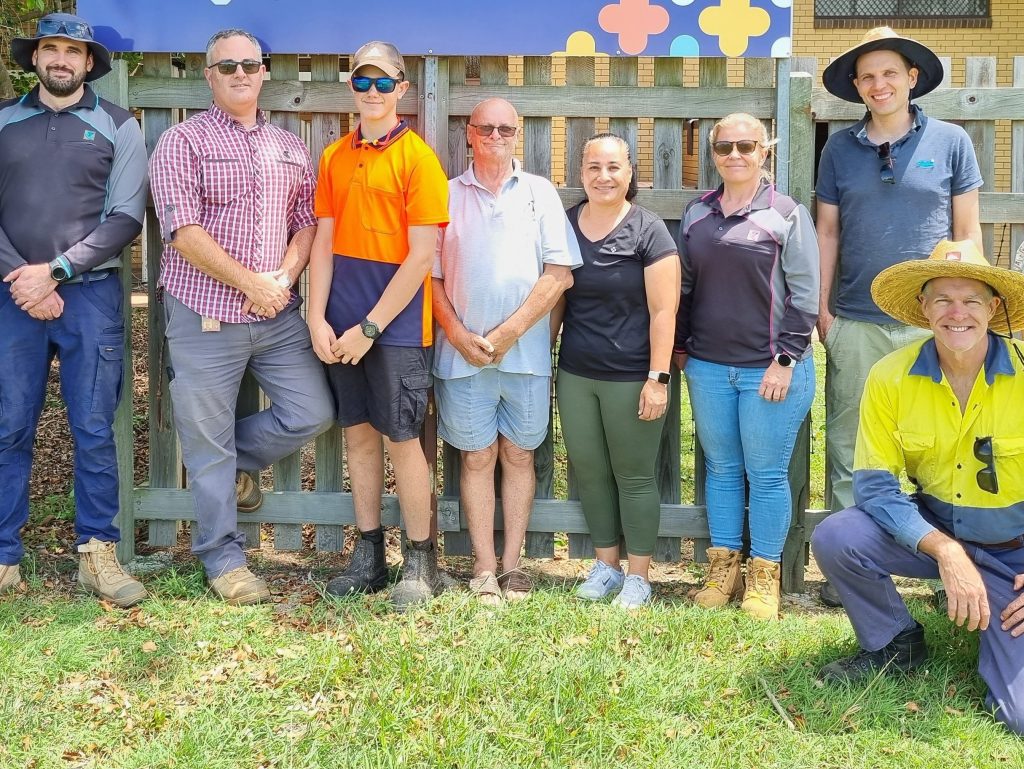
Telstra has committed to funding this grant program until 2025. The annual commitment of $200,000 will make grants up to $10,000 available for not-for-profit community organisations that provide access to information, technology, education and facilities for the purpose of building both social capital and digital capability.
The new program has three goals. To foster:
- Resilient communities that are well prepared and socially connected when disaster strikes with the ability to renew and recover together;
- Sustainable communities that are diverse and inclusive, planning for the health, wellbeing, and prosperity of their people and the planet; and
- Liveable communities that have digital capability and help to equip individuals with the skills to live, learn and work in a digital society.
Loretta Willaton, Regional Australia Executive and Regional Customer Advocate at Telstra said the program is all about keeping people connected in a range of ways, both online and offline.
“At Telstra, we know how important it is to keep people connected. The last few years in particular have shown everyone the importance of connectedness within our communities. Rural and regional Australia has been doing it particularly tough in recent years and so we wanted to do our part in helping the country to rebuild.
“Obviously one of the best ways to keep people connected is through technology and digital equipment but we know access, understanding and management of these tools can be a barrier. We’ve designed this program to create opportunities for a wide range of projects to address these barriers such as a local event, an educational workshop or not for profit organisations embracing new technology or managing cyber security. We are open to support any kind of initiative that gives people better access to information that will enable a stronger social network, safer online interactions, or access to information for disaster preparedness or environmental sustainability,” Ms Willaton said.
FRRR’s Acting CEO, Sarah Matthee, said that programs like these, help people to maintain their connection to their community and play a key role in many different aspects of life in remote, rural and regional Australia.
“We’re excited to launch the first round of this new program in partnership with Telstra. Our Heartbeat study highlighted a significant digital divide for remote, rural and regional not-for-profit organisations, particularly when it comes to accessing digital resources and the opportunity to improve knowledge and skills to harness technology to maintain and create connections. We know that these connections are so important in strengthening each community’s ability to withstand future disruptions and maximise sustainability and liveability.
“We’re looking forward to applications from community groups that are facilitating local events and community programs that support local communities learning and adapting to change – be it accessing information for disaster preparedness or better environmental practices, implementing better e-waste solutions, boosting cyber-security, and much more” Ms Matthee said.
Applications close Thursday, 30 March 2023 at 5pm AEDT. For more information and the guidelines, visit https://frrr.org.au/telstra-connected-communities-program/.
Potential applicants are encouraged to sign up for an online Grantseeker Webinar for more information about the program and useful tips for applying at 12pm AEDT, Monday 6 March.
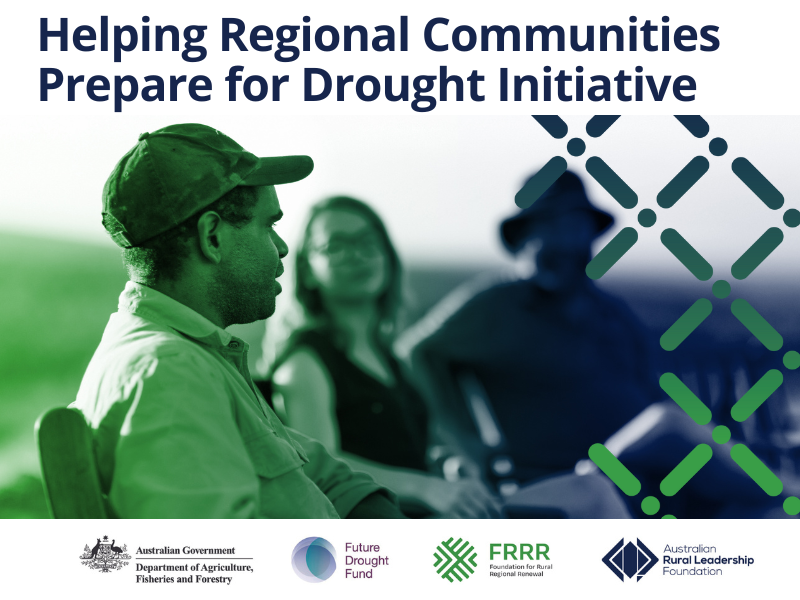
The Foundation for Rural & Regional Renewal (FRRR) and the Australian Rural Leadership Foundation (ARLF) are looking for a local NFP partner to work with them across the Loddon Campaspe region as part of the Helping Regional Communities Prepare for Drought Initiative Community Impact Program.
The region encompasses the Campaspe, Central Goldfields, Greater Bendigo, Loddon, Macedon Ranges and Mount Alexander Shires.
The Initiative is funded through the Australian Government’s Future Drought Fund and designed to help agriculture-dependent communities across remote, rural and regional Australia enhance their preparedness for drought.
The $29.6 million investment over three years builds on the Future Drought Fund’s previous Networks to Build Drought Resilience program (led by FRRR) and the Drought Resilience Leaders program (led by ARLF).
The place-based Community Impact Program is designed to support community members and not-for-profit organisations to drive local action that helps prepare for drought. There are two main components to the program:
- Community Impact Grants: This between $200,000 and $500,000 available and FRRR will work with the lead community organisations to develop, co-design and deliver projects that strengthen community networks, capabilities and facilities that support drought preparedness; and
- Community Leadership Activities: ARLF will offer a range of funded leadership development activities to support community members to develop their leadership skills, and equip them with the networks to respond to drought preparedness in their community.
FRRR’s Disaster Resilience and Recovery Lead, Nina O’Brien, said that this a great opportunity for the communities in Loddon Campaspe to proactively strengthen drought resilience.
“While there has been a lot of flooding in recent months, it’s highly likely that it won’t be too long before drought is on our radar. Rural communities are better able to withstand the impacts of events like drought – and indeed other disasters – when they are strong and well connected. The overall aim of this program is to facilitate increased social connection, strengthen network opportunities and link capacity building opportunities to ensure widespread local benefit, so that communities are better prepared for the future.
“But we know that looks different in each community, which is why we are looking for a local lead partner. They will work with other community members and organisations to identify what local action is most appropriate. FRRR staff will be there to support the process and we’ll also fund a facilitator to work with the community to get the best outcome possible.
“The grants can fund projects, events, initiatives, training, capability building and small-scale community infrastructure projects and we’re really keen to make sure that First Nations communities and younger people are also engaged in drought resilience planning and action,” Ms O’Brien explained.
As part of the program, ARLF will offer a number of optional and complementary Leadership Development Activities at no cost to the successful applicants. These are designed to strengthen the leadership capabilities of communities to build individual and community drought resilience.
ARLF’s Chief Executive Officer Matt Linnegar said that because every lead organisation and region will be at a different point in their resilience journey, ARLF has a number of options that communities can tap into.
“We have five leadership development activities, ranging from intensive residential leadership programs to a series of deep-dives into particular leadership topics to group coaching. Each is underpinned by the concepts of adaptive leadership, resilience and network leadership.
“Applicants will need to include their preference for leadership development activities when they lodge their express of interest for the Community Impact Program, and we will work closely with applicants to refine their preferences as we move through the collaborative project design phase,” Mr Linnegar explained.
Initial expressions of interest close 22 March 2023, with shortlisted groups commencing co-design in their communities in May and funding confirmed in August 2023. Groups will have until June 2025 to implement the projects.
Interested groups can learn more about the program and lodge their EOI by visiting www.frrr.org.au/impact-program.
Ravensthorpe Community Resource Centre (CRC) Inc is integral in coordinating and managing community and business events throughout the Ravensthorpe Shire in Western Australia. They have expanded to the Fitzgerald Business Network, which is focused on connecting and skill building businesses throughout the district including social development activities such as Study with a Buddy After School Program; Seniors Computer Club and major annual events such as Wellness Weekender and Galaxy Country Carnival and Street Parade.
A $5,000 Nutrien Ag Solution Community Grant in 2021 provided the opportunity to improve community organisations’ employee and volunteer management. The grant funded bringing in a local human resources consultant to develop tailored solutions for paid and unpaid personnel in local community groups, run workshops on volunteer management software systems and set up a central register for formal volunteer documents. Additionally, a project manager was paid to plan and co-ordinate the work.
Volunteers are the lifeblood of many communities. However, this is a great example of how funding can temporarily increase organisational capacity to complete work effectively. In this case the original plan of completing one group training was not possible so several sessions had to be coordinated to ensure all local community groups could participate.
There have been some great outcomes:
- Position descriptions and employment contracts were developed for seven community groups or volunteer programs, including the Community Spirit Committee and Ravensthorpe Regional Arts Council.
- A volunteer certificate register was developed and promoted. It has benefited three groups (and will continue to benefit others) who have volunteers that require Working With Children Checks, Responsible Service of Alcohol Certificates and that want to store these certificates in a central location.
- Two workshops on cloud-based volunteer management options were delivered.
Chairperson Tracy Ebert was delighted with the project outcomes. “We have developed a suite of tailored resources for some of our most important local community groups. The volunteers on these groups now feel much more confident to engage volunteers and paid staff knowing that they are meeting all legal requirements. The volunteers have enjoyed having very clear expectations and have remained engaged. There are now at least three other groups in the community using the volunteer software system presented to manage volunteers and the reporting to committees and management of tasks has been vastly improved in these instances.
“And that’s not all,” she continued. “Excitingly, we have been able to provide these resources to a region-wide project – South Coast Enviro Experiences – with similar objectives (as the challenges with managing volunteers are universal), which means they don’t have to reinvent the wheel and can direct their resources into other essential elements of the project which we will benefit from.”
There are learnings in all projects and the Ravensthorpe CRC are conscious of the security of the data they hold on behalf of their volunteers, and have taken all measures for its secure keeping.
Overall, 60 people from Ravensthorpe community organisations directly benefited from the training and presentations, and there is the ongoing benefit to human resource documentation and administration skills to support current and future employees and volunteers in Ravensthorpe.
Around three hours drive from Adelaide, along the beautiful coast, the Southern Yorke Peninsula Community Hub (SYP) is a central organisation that offers a range of services to its community.
From faxing, to printing, to car and boat licenses, the Hub provides tourist information and is home to the local Salt Lakes Gallery. With a role as big as this in the community, it makes sense that the Hub would be crucial during emergencies.
In November 2019, bushfires occurred in isolated rural areas along the Peninsula, putting many towns at risk. The community of Yorketown was in the fire path until a wind change moved it along to then endanger the township of Edithburgh. The fires impacted power supplies, road closures and communications for prolonged periods. The SYP Community Hub supported the community as a response centre throughout this event.
Since the 2019 bushfires, SYP Community Hub has been heavily involved in coordinating disaster recovery services. This included purchasing a custom-built trailer, the first in the Yorke Peninsula Council area. Using a $24,950 Strengthening Rural Communities (SRC) grant, funded by a private donor, the trailer has become a multipurpose community resource.
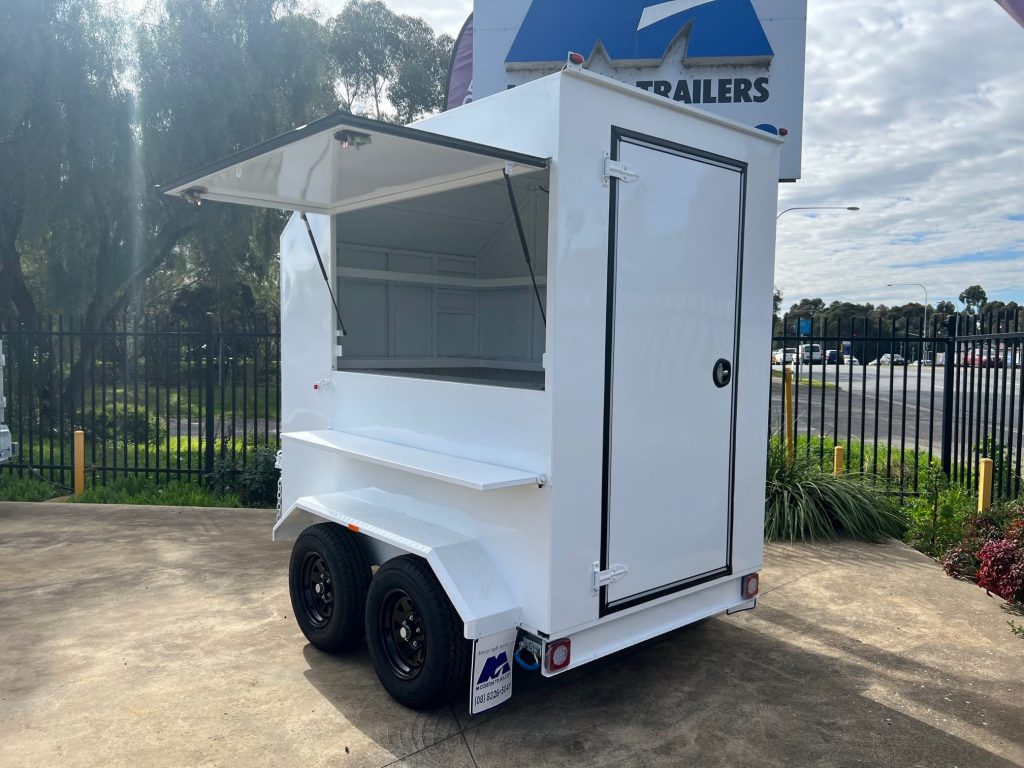
During emergencies, the trailer will enable deployment of supplies such as food, water and basic first aid. It will also assist in distributing supplies to volunteers and act as a rest station during incident response. The versatility of the trailer also means that it can be used during community-led events.
The impact the trailer has had on the community has been exceptional. “The response from residents is one of pride in its completion and the feeling of readiness should they once again be faced with an crisis like the 2019 bushfires. The community is better prepared, trained appropriately and with a strong band of volunteers.”
Like many plans during the last few years, the start of the project was delayed due to COVID. Materials were in short supply and the engineering firm responsible for building the trailer was hit by COVID and forced to close for a period of time. But once they were able to safely get back to work, the trailer came together nicely.
The Grants Only Group (GOG ) is a vibrant group of older and younger community members committed to helping community groups in their area succeed with their grant applications. Primarily focused on the Lower Tarwin Valley District in Victoria, dairy farming is an integral part of these communities and the surrounding areas.
While working with many community groups to raise funds for local events and activities, GOG frequently saw groups hiring sound systems. This gave them a bright idea. In 2020, the group successfully applied for a $4,838 Gardiner Dairy Foundation Community Grant to purchase a Community PA System. The grant allowed them to purchase four speakers, tripods and microphones that could be used by organisations and businesses in the townships of Venus Bay, Tarwin Lower and Walkerville.
Thirty-seven organisations in the area were emailed about the available equipment, who to contact and how they could place a booking for use. Since purchasing the Sound System, there has been high demand. So far, the Community Luncheon Group, Tarwin District Auto & Machinery Club’s Australia Day event, which raises funds for dementia, and Tarwin Mechanics Institute Hall’s Anzac Day service have all had a turn with the new gear.
Some clever thinking by GOG has created a practical shared community asset that reduces costs and time for the running of local community activities.
GOG President Wendy Don said “By strengthening our community, we are building the foundations for the sustainability of Dairy farming in the Lower Tarwin Valley. All the locals and the many tourists that visit these beautiful Gippsland Dairy Communities will benefit for years to come.”
More Black Saturday funding for community-led initiatives
FRRR is inviting applications from local not-for-profit groups for grants to support ongoing recovery efforts following the Black Saturday bushfires in 2009.
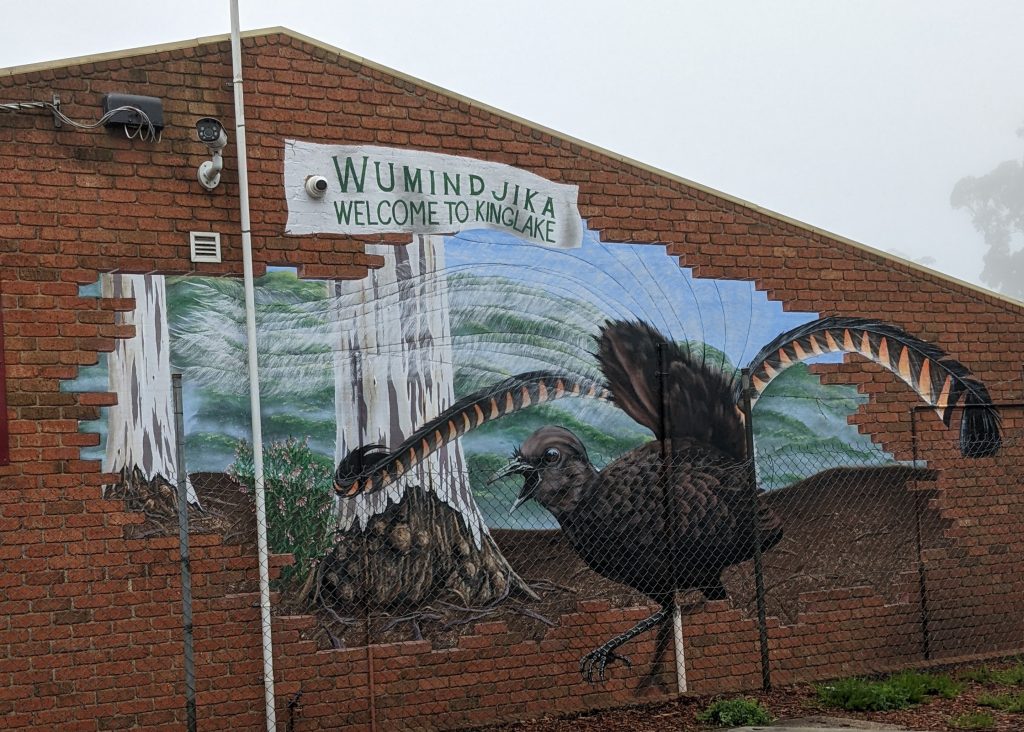
Thanks to the Victorian Bushfire Appeal Fund there is $180,000 available to not-for-profit groups in Kinglake, Kinglake Central, Kinglake West, Pheasant Creek, Toolangi and Flowerdale. Projects identified through the Kinglake Ranges and Flowerdale Conversations for Change talks and Toolangi-Castella community plans will be prioritised.
Nina O’Brien, FRRR’s Disaster Resilience and Recovery Lead, said that FRRR is keen to get this last tranche of funding out into the community to fund community-strengthening and resilience-building projects that align to the VBAF program’s intent.
“We had some great projects come forward at the end of last year and it’s pleasing to see them starting to kick off. However, not all the applications we had last year fit with the guidelines of the program and the intent of the Victorian Bushfire Appeal Funds program, hence we still have some funding available.
“Applications must be for new projects that directly assist those individuals and communities that were affected by the 2009 fires and need respond directly to a specific hardship or distress caused by the bushfires. Projects also need to benefit the wider community and so applications should demonstrate community support and the involvement of a range of community groups or representatives,” Ms O’Brien explained.
Approximately $180,000 is available for distribution via grants of up to $25,000, or higher by exception. Applications requesting more than $25,000 must be discussed with FRRR prior to submission. Note too that projects relating to government-owned infrastructure and/or sporting organisations must be discussed with FRRR before they are lodged.
Applications close Wednesday 3 May, 2023, at 5pm AEST, with successful applicants announced in August 2023. For more information and the guidelines, visit https://frrr.org.au/grants-for-resilience-wellness-kinglake/ . Email recovery@frrr.org.au or call 1800 170 020.
To date, through GR&W Kinglake, FRRR has awarded over $1.1M for 35 projects to local groups in the Kinglake Ranges. Any community impacted by 2009 bushfires and not located in Kinglake Ranges region can apply for support through FRRR’s Strengthening Rural Communities program.
FRRR announced today that they have appointed two facilitators in the Shoalhaven region to support the ongoing delivery of their Investing in Rural Communities Futures program.
These positions are being funded using part of the $1.3 million investment made by the Australian Government, through the Black Summer Bushfire Recovery Program, which FRRR announced in November 2022.
The Investing in Rural Community Futures (IRCF) program has operated in the Shoalhaven and South Coast area since 2020, thanks to support from The Snow Foundation and Bendigo Bank, through their Community Enterprise Foundation. It is designed to help increase the capacity of the myriad of not-for-profit organisations who are so critical to the sustainability and vibrancy of the area.
Over the last three years, not-for-profits in Nowra, Ulladulla, Bateman’s Bay and more recently the Bay and Basin communities have come together to develop a roadmap of the assistance and skill-building that will help local NFPs to prepare for, respond to and recover from natural disasters, as well as the opportunities in the community. The most recently Federal Government funding means that support can now extend to Lake Conjola and Kangaroo Valley, areas that were severely affected by the Black Summer Bushfires.
The appointment of the two facilitators is the latest stage in the roll out of the funding from the Australian Government. That funding is also being used to support leadership and skill development, such as participation at the Art of Hosting workshop which is underway at Willinga Park in Bawley Point this week.
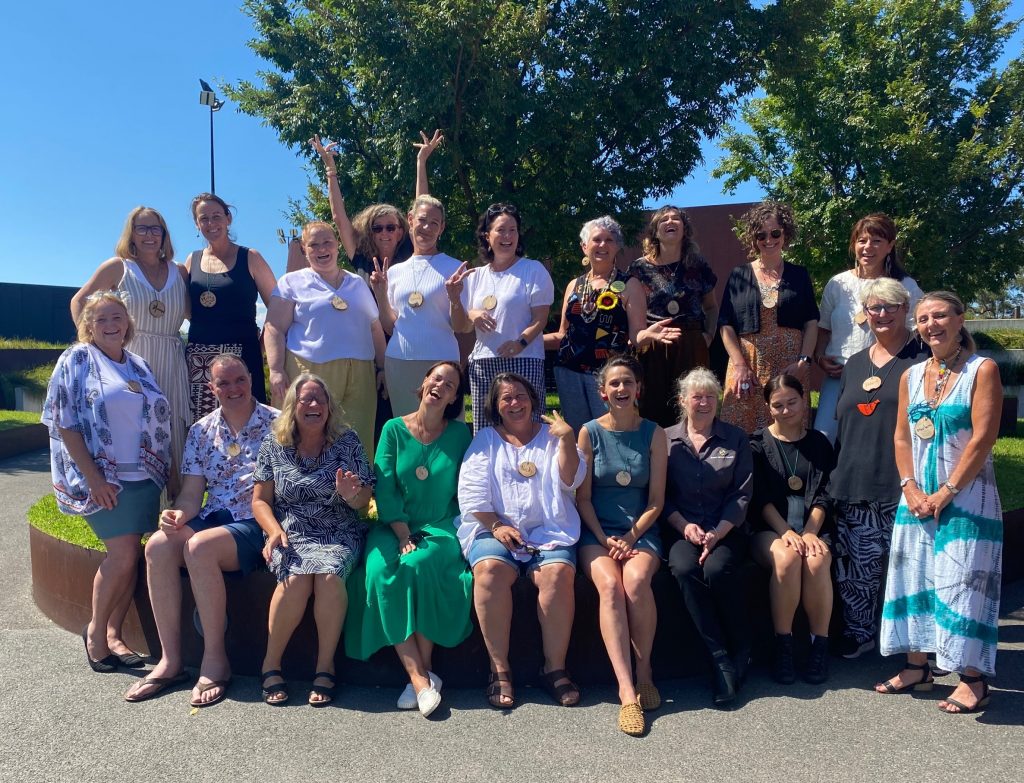
Attendees at Art of Hosting workshop 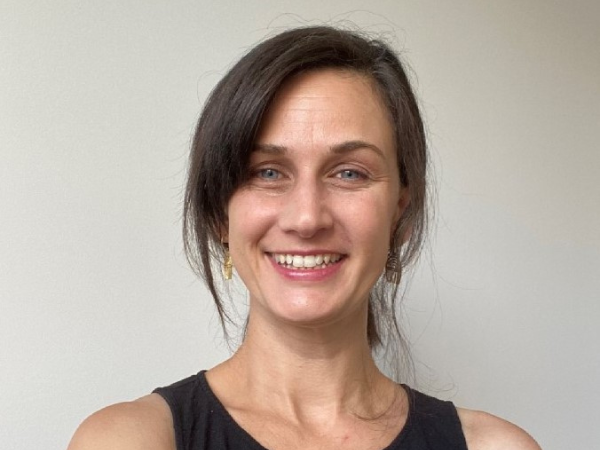
Kate McBride, Bay and Basin Facilitator 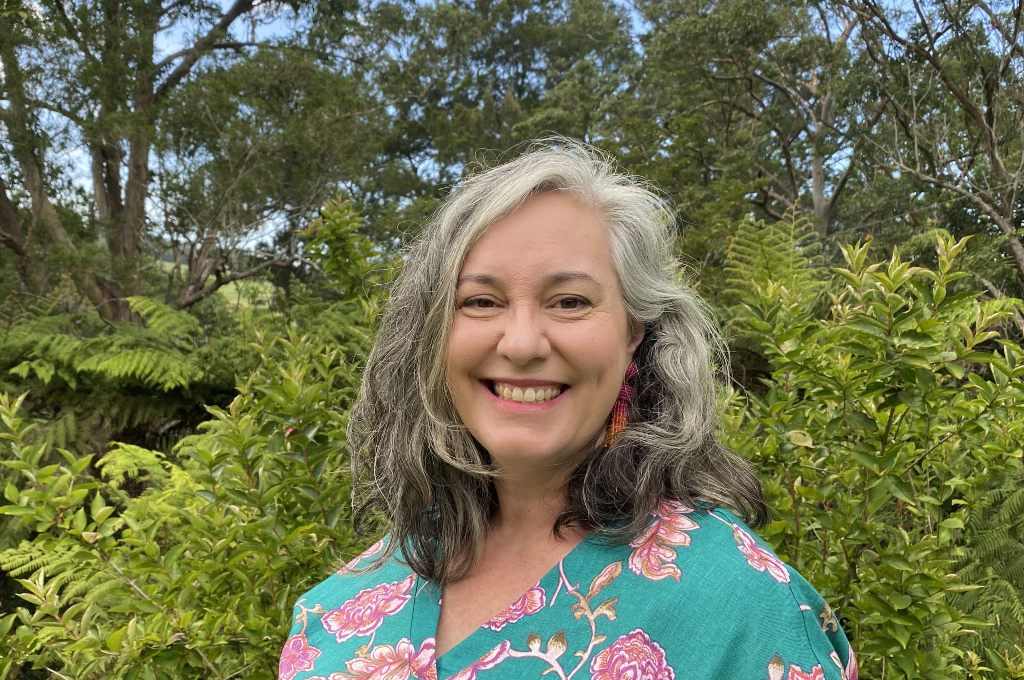
Meg Stratti, Nowra and Kangaroo Valley Facilitator
Meg Stratti will be working with communities in Nowra and Kangaroo Valley. She has lived in the Shoalhaven for the last 10 years, working to support local communities primarily through roles in adult education.
Kate McBride, who will work with Bay & Basin communities has lived on Yuin Country for around 20 years, and brings more than 15 years’ experience in capacity building and community engagement within not-for-profits (NFPs), grassroots community organisations and local government sectors.
Meg and Kate join Monique Carson (looking after Ulladulla and surrounds) and Jules Klugman (Batemans Bay) in working with community groups across the South Coast.
FRRR’s IRCF Program Coordinator for the South Coast, Carolyn Ardler, says that the additional Government support is a great opportunity to build upon the work they have been doing in the local communities with the support of philanthropic partners through the IRCF program.
“This workshop is the first chance that we’ve had to bring the facilitators together with local community leaders. All of them are attending the Art of Hosting workshop, which will enhance everyone’s ability to engage in conversations about the issues that matter. Together with the roadmap, this will ensure we’re all on the same page and can continue to work together to ensure local leaders have the tools they need to work towards their goals and priorities.
“This session is just one example of how we will continue to use this program to make sure the communities themselves are leading the conversation when it comes to their recovery,” Ms Samuels explained.
Matt Dell, President of Business Milton Ulladulla and Community Connect Southern Shoalhaven, says it’s rewarding to see the funding having such a direct benefit on the Shoalhaven communities.
“Enormous progress has been made in our local areas to recover after the devastating Black Summer fires. The IRCF program has been vital in supporting the community to rebuild and reconnect. It is absolutely essential the ICRF program continues with additional resources to empower our recovery and future resilience.”
Other upcoming initiatives include a leadership training program, which is being led by the Australian Rural Leadership Foundation, plus other sessions prioritised by the local community.
To find out more about the IRCF program in your community or to get involved, visit ircf.frrr.org.au or contact FRRR on 1800 170 020.
The Foundation for Rural & Regional Renewal (FRRR) and the Australian Rural Leadership Foundation (ARLF) are looking for a local NFP partner to work with them across the Far West NSW, Northwest QLD and Great Southern WA regions, as part of the Helping Regional Communities Prepare for Drought Initiative Community Impact Program.
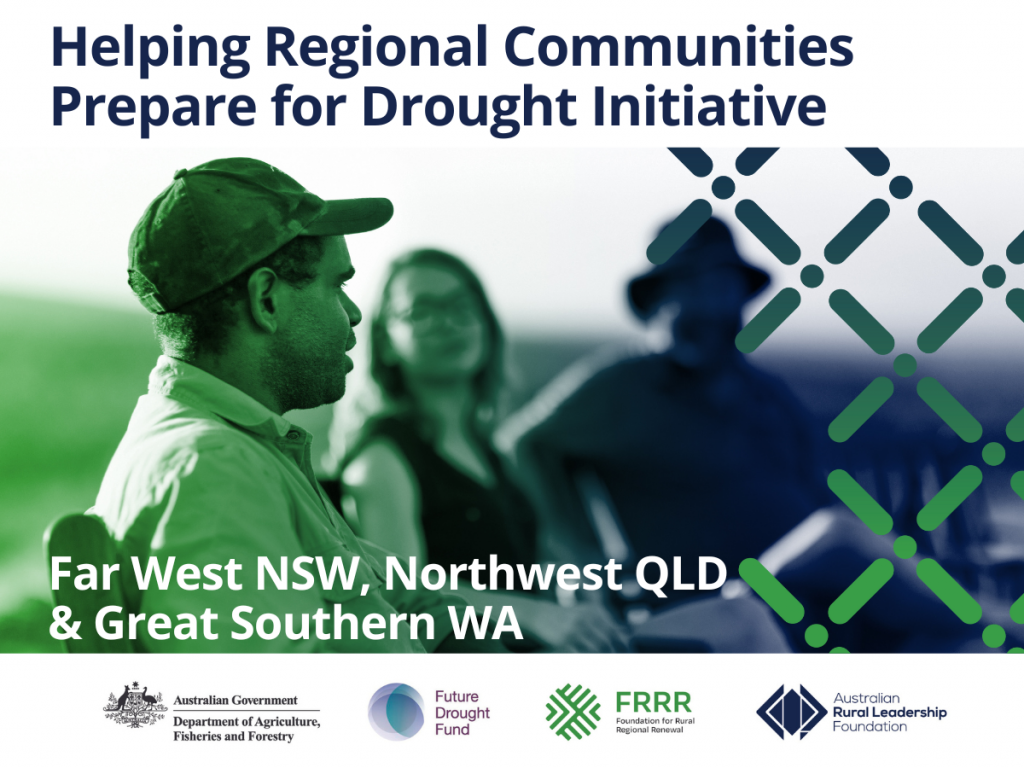
The Initiative is funded through the Australian Government’s Future Drought Fund and is designed to help agriculture-dependent communities across remote, rural and regional Australia enhance their preparedness for drought.
The $29.6 million investment over three years builds on the Future Drought Fund’s previous Networks to Build Drought Resilience program (led by FRRR) and the Drought Resilience Leaders program (led by ARLF).
The place-based Community Impact Program is designed to support community members and not-for-profit organisations to drive local action that helps prepare for drought. There are two main components to the program:
- Community Impact Grants: There are grants between $200,000 and $500,000 available and FRRR will work with the lead community organisations to develop, co-design and deliver projects that strengthen community networks, capabilities and facilities that support drought preparedness; and
- Community Leadership Activities: ARLF will offer a range of funded leadership development activities to support community members to develop their leadership skills, and equip them with the networks to respond to drought preparedness in their community.
FRRR’s Disaster Resilience and Climate Solutions Portfolio Lead Nina O’Brien said that this is a great opportunity for community groups in Far West NSW, Northwest QLD and Great Southern in WA to proactively strengthen drought resilience.
“Rural communities are better able to withstand the impacts of events like drought when they are strong and well connected. The overall aim of this program is to facilitate increased social connection, strengthen network opportunities and link capacity building opportunities to ensure widespread local benefit, so that communities are better prepared for the future.
“But we know that looks different in each community, which is why we are looking for a local lead partner. They can then work with other community members and organisations to identify what local action will be most appropriate. FRRR staff will be there to support the process and we’ll also fund a facilitator to work with the community to get the best outcome possible.
“The grants can fund projects, events, initiatives, training, capability building and small-scale community infrastructure projects and we’re really keen to make sure that First Nations communities and younger people are also engaged in drought resilience planning and action,” Ms O’Brien explained.
As part of the program, ARLF will offer a number of optional and complementary Leadership Development Activities at no cost to the successful applicants. These are designed to strengthen the leadership capabilities of communities to build individual and community drought resilience.
ARLF’s Chief Executive Officer Matt Linnegar said that because every lead organisation and region will be at a different point in their resilience journey, ARLF has a number of options that communities can tap into.
“We have five leadership development activities, ranging from intensive residential leadership programs to a series of deep-dives into particular leadership topics to group coaching. Each is underpinned by the concepts of adaptive leadership, resilience and network leadership.
“Applicants will need to include their preference for leadership development activities when they lodge their express of interest for the Community Impact Program, and we will work closely with applicants to refine their preferences as we move through the collaborative project design phase,” Mr Linnegar explained.
Initial expressions of interest close 8 March 2023, with shortlisted groups commencing co-design in their communities in April and funding confirmed in July 2023. Groups will have until June 2025 to implement the projects.
Interested groups can learn more about the program and lodge their EOI by visiting www.frrr.org.au/impact-program.
FRRR today welcomed a new $600,000 partnership with Telstra, which will see a new grant program launch in March 2023.
Telstra’s Connected Communities Grant Program will boost support for NFPs and communities across remote, rural and regional Australia to improve resilience, environmental sustainability and liveability through the power of connection.
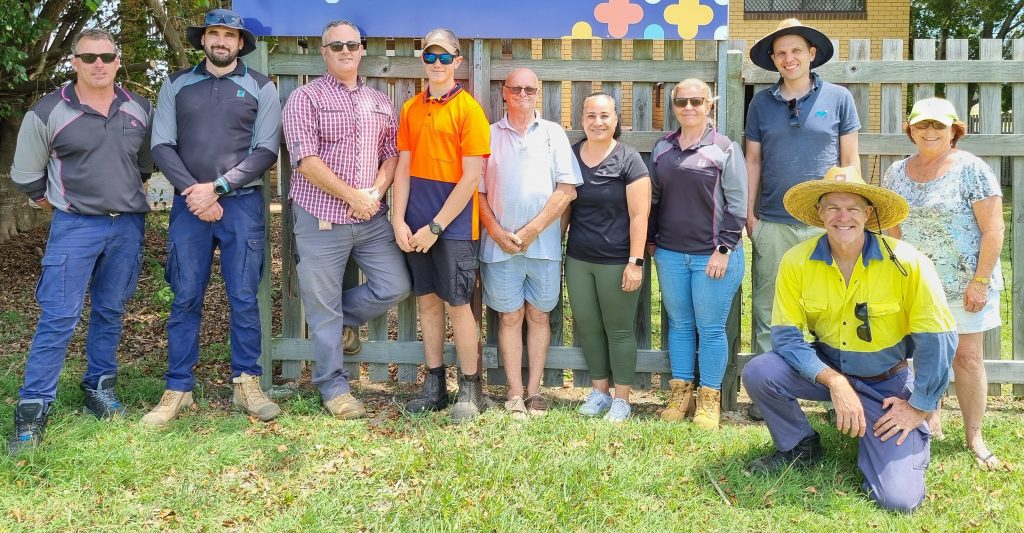
The program will offer grants up to $10,000 for not-for-profit community organisations that are providing access to information, technology, education and facilities to support their communities to embrace new technologies and ways of working to build social capital and digital capability.
FRRR’s Acting CEO, Sarah Matthee, said that this is a wonderful new partnership that will help address one of the biggest gaps identified in FRRR’s Heartbeat of Rural Australia study in 2021.
“The Heartbeat study really highlighted a significant digital divide for remote, rural and regional not-for-profit organisations, particularly when it comes to capacity to access digital resources and the opportunity to improve knowledge and skills to harness technology to maintain and create connections. But we also know that connections are so important in building resilient communities, as well as sustainable communities. So this contribution from Telstra is very welcome, as it will help to address some of those challenges and harness many of the opportunities in country Australia. We very much look forward to launching the program next month,” Ms Matthee said.
Read Telstra’s full announcement or learn more on Telstra’s Connected Communities Grant Program page.

